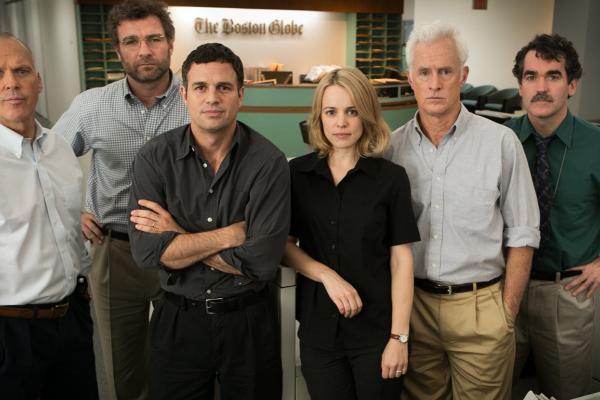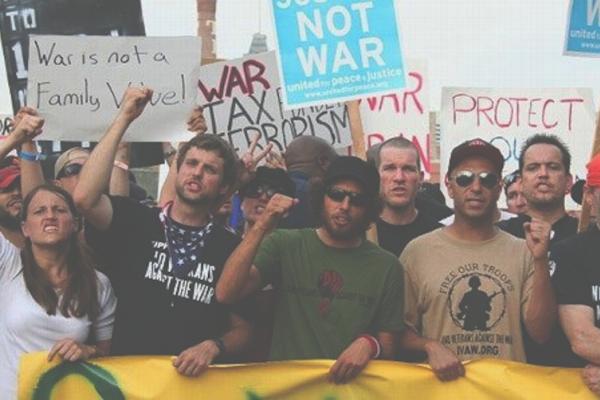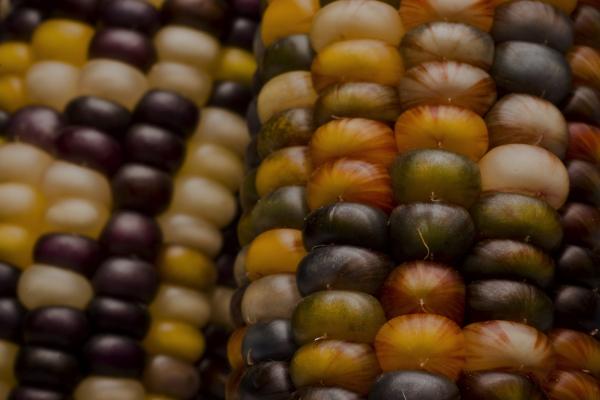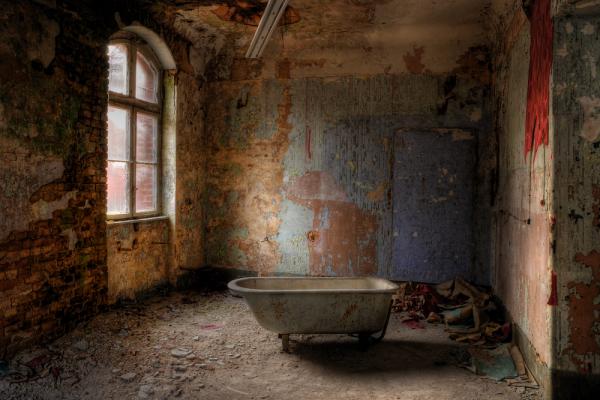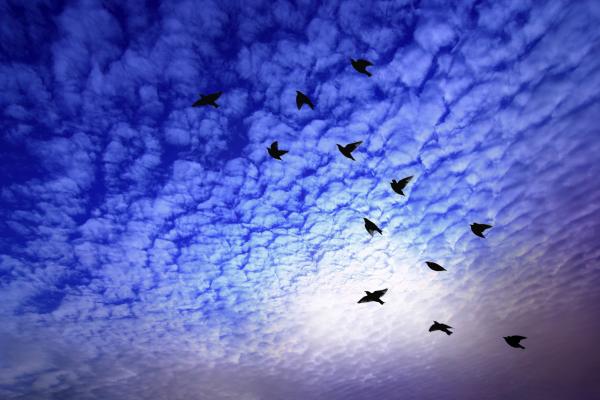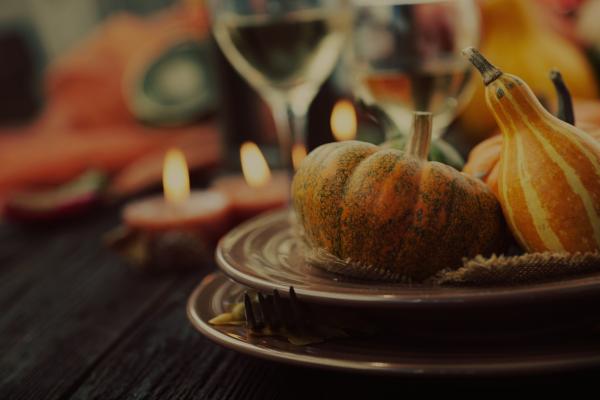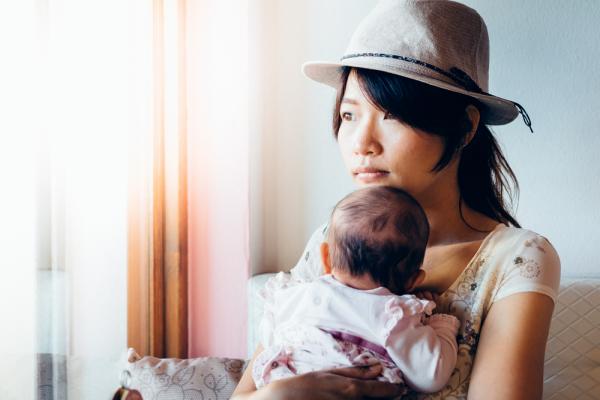Early in the film Spotlight, about the Boston Globe investigative reporting team that exposed the decades-long cover-up of sex abuse by Catholic church leaders, a Globe reporter is shown at Mass with her grandmother. The priest, launching his homily, says, “Knowledge is one thing. Faith is another.”
In a simplistic film, this binary statement might set the tone for a black-and-white portrait of journalists as pure heroes and people of faith as solely hypocrites and worse. But Spotlight works with characters not caricatures; not one-dimensional heroes and villains, but real people who sometimes choose expediency and sometimes courage. No one is shown to be flawless, not even the reporters and editors who do great good in bringing to light systemic crimes.
But the movie does illustrate quite clearly one tension between knowledge and faith: The guardians of institutions, including churches, can fear knowledge to the point of pathology.
There we were, a group of political musicians, arm in arm, leading the populace. And we didn’t really know what to sing. The irony of the situation stuck with me. The power of our songs had gathered the people. But once the people gathered, where were the songs for that day's movements?
2008 was the year that most people got to know my group Flobots and our music, especially through the national release of Fight With Tools. 2008 was also a historic election year. Eight years later, as we prepare to release our album in 2016, the country is gearing up for another decisive election. And as division grows, some artists are singing out, and some movements are finding their refrains. This timing is significant.
When we look at the movements happening today, we see everyday people seeking to resist violence, racism, and destruction. We see raised voices crying out for transformation. It is critically important that they succeed.
Thanksgiving. That word holds profound meaning for Americans, most of it nostalgic. I remember in grade school when our classes would present Thanksgiving pageants that retold the story of Thanksgiving. We all know it by rote:
The pilgrims were persecuted in England (probably because the men wore buckles on their hats, culottes, and white stockings — who does that?). Anyway, in 1620, they got in a boat and sailed to America, where they met brown people in paper cutout, feathered headdresses and hand-me-down 1970s fringe vests and wrangler jeans. The pilgrims said “Hi!” and the headdress people (called “Indians,” for no good reason) said “How!” When the pilgrims realized they didn’t know how to cook the food in this “new world,” the Indians showed them how to cook cornbread, cranberry sauce, and collard greens (or at least that’s how the story went in my school). Turkeys were plentiful in the new world, so when the hat buckle people and the headdress people held a feast in November of 1621 to celebrate their new friendship, a turkey sat at the center of the table.
This is the way modern adults struggle to teach children the foundations of our nation’s history. What will it take for us to face our history head on — to face the sinful foundations upon which we stand?
Q: Al-Qaida is al-Qaida. Hamas is Hamas. But the Islamic State can be “ISIS,” “ISIL,” and “Daesh.” Why so many names?
A: Put the group’s Arabic name into the translation machine, and you get different renderings in English.
The first part of the original name — Dawlat al-Islamiyah f’al-Iraq w Belaad al-Sham — is straightforward: “Islamic State in Iraq.” But you’ve got some room for disagreement on “Sham,” which can be “Syria” or “Greater Syria” or “the Levant.” Go with “Syria” and the acronym becomes “ISIS.” If you choose “Levant,” your acronym is “ISIL.”
You could also say the “Islamic State,” the name the group now prefers. But many call that wrongheaded or offensive or both. It is not a state. And there is nothing Islamic about it, said Imam Sayyid M. Syeed of the Islamic Society of North America.
“It’s misusing the name of Islam in such an ugly way,” he said.
Bill Maher is known for his often vitriolic rhetoric against religion, especially Islam. But the comedian was actually raised Catholic. When Maher stopped by the Late Show to chat with Stephen Colbert, America’s most famous Catholic invited him to give Catholicism another try.
Their conversation was clearly tongue-in-cheek, but you can certainly feel some tension.
An Italian investigative journalist on Nov. 17 spoke out against what he called a “medieval” Vatican law that might result in a jail sentence of up to eight years for publishing confidential Holy See documents.
Emiliano Fittipaldi, whose new book Avarice reveals the struggle for financial reform at the Vatican, is under investigation for publishing secret documents leaked from the Holy See. A fellow Italian journalist, Gianluigi Nuzzi, is also being investigated for revelations made in his book, Merchants in the Temple.
While describing the investigation as “a terrible moment,” Fittipaldi remained defiant:
“From my point of view they are crazy charges, in the sense that in no democratic state, in no Western democracy, are there such restrictive laws on press freedom and expression.”
Even though the Great Recession officially ended in 2009, 72 percent of Americans believe that the U.S. is still in recession, a figure unchanged from 2014. While that figure has remained steady, this year has seen a dramatic spike of discontent regarding economic inequality. Over the past four years, only slight majorities (53 to 55 percent) have agreed that “One of the big problems in this country is that we don’t give everyone an equal chance in life.” But in 2015, 65 percent of Americans agreed.
And Republicans and Democrats overwhelmingly agree, at least on this: The federal government is looking out for the rich. The American Dream, seemingly in question since the Great Recession, is now only an idle daydream for most.
And as Americans give up on the American Dream, they grow more suspicious of immigrants. In 2012, 57 percent of Americans believed that immigrants strengthened the U.S. That number has now, dangerously, fallen below a majority, to 46 percent. And it has gotten personal — more people report being bothered when they encounter non-English speakers.
A friend of mine who was serving as chief of his band said that the heart of Indigenous Cree spirituality revolves around praying for good hunting in the fall, and giving thanks for good hunting in the spring.
When I relate this story, sometimes people ask, “How do you know it was good hunting?”
I replied, “If you make it through the winter alive, it was good hunting.”
In Indigenous Cree theology, we begin with the idea that it is a good world. The Creator made her, and she provides for us. Our response to enjoying the world that Creator has provided is to give thanks.
Thanksgiving fulfills the circle of relationships that characterize our journey here on the circle of the earth. Being unthankful can indicate a shift in focus, from the relationships that make up our world to focus upon ourselves.
When we think about the meeting of the first pilgrims and the Native Americans, we usually connect vicariously to one side of that old Plymouth encounter, mysteriously linking our faith journey to the early pilgrims’ faith journey. But what about those long-ago Native Americans? Is there a reason to remember them as more than a foil for the pilgrims?
Year after year we think warmly of that first union of the pilgrims and the Native Americans — and then we continue on in the supposed faith tradition of one of those peoples without another thought to the fate of the others.
So what role do those old Native Americans play in our faith today, and how might we bring them to mind or honor them? Here are a few ways you can faithfully honor both sides of the Thanksgiving table this year.
I’ve heard it said that you don’t know true love until you hold your baby for the first time. I hate that, for so many reasons. And I hate whoever has said it to me or anyone else. Hate it.
This may come as a shock, but I’ve got the slightest anger issue. It’s more accurate to say I didn’t know true anger until I became a mother.
There’s the daily anger, like slaving away in the kitchen for hours only to have people gag and demand crunchy toast and cookies to eat, while they scream and scratch their sister and slip on spilled water and cry for hours. There’s the hourly anger, like the struggle between wanting to check out and check e-mail in the face of little people wanting to play or needing to be disciplined.
